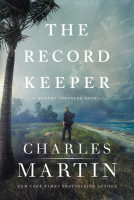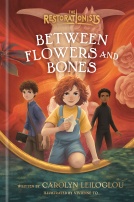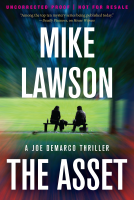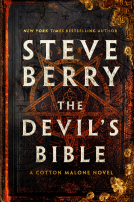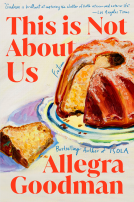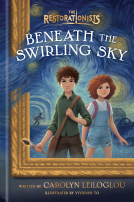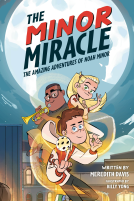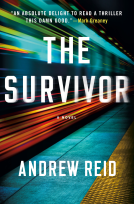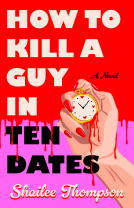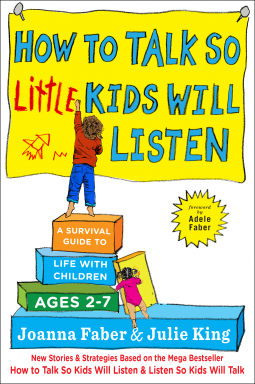
How to Talk so Little Kids Will Listen
A Survival Guide to Life with Children Ages 2-7
by Joanna Faber; Julie King
This title was previously available on NetGalley and is now archived.
Send NetGalley books directly to your Kindle or Kindle app
1
To read on a Kindle or Kindle app, please add kindle@netgalley.com as an approved email address to receive files in your Amazon account. Click here for step-by-step instructions.
2
Also find your Kindle email address within your Amazon account, and enter it here.
Pub Date Jan 10 2017 | Archive Date Oct 12 2021
Description
A must-have resource for anyone who lives or works with young kids, with an introduction by Adele Faber, coauthor of How to Talk So Kids Will Listen & Listen So Kids Will Talk, the international mega-bestseller The Boston Globe dubbed “The Parenting Bible.”
For over thirty-five years, parents have turned to How to Talk So Kids Will Listen & Listen So Kids Will Talk for its respectful and effective solutions to the unending challenges of raising children. Now, in response to growing demand, Adele’s daughter, Joanna Faber, along with Julie King, tailor How to Talk’s powerful communication skills to children ages two to seven.
Faber and King, each a parenting expert in her own right, share their wisdom accumulated over years of conducting How To Talk workshops with parents and a broad variety of professionals. With a lively combination of storytelling, cartoons, and fly-on-the-wall discussions from their workshops, they provide concrete tools and tips that will transform your relationship with the young kids in your life.
What do you do with a little kid who…won’t brush her teeth…screams in his car seat…pinches the baby...refuses to eat vegetables…throws books in the library...runs rampant in the supermarket? Organized according to common challenges and conflicts, this book is an essential emergency first-aid manual of communication strategies, including a chapter that addresses the special needs of children with sensory processing and autism spectrum disorders.
This user-friendly guide will empower parents and caregivers of young children to forge rewarding, joyful relationships with terrible two-year-olds, truculent three-year-olds, ferocious four-year-olds, foolhardy five-year-olds, self-centered six-year-olds, and the occasional semi-civilized seven-year-old. And, it will help little kids grow into self-reliant big kids who are cooperative and connected to their parents, teachers, siblings, and peers.
Available Editions
| EDITION | Other Format |
| ISBN | 9781501131653 |
| PRICE | $29.99 (USD) |
| PAGES | 416 |
Average rating from 33 members
Featured Reviews
 Julie H, Librarian
Julie H, Librarian
I am cheating by reviewing this without finishing it but I already have found it to be useful in real life and wanted to say so. Mothers of this age group probably don't have time to read this gem, (who had time to read anything other than picture books when our children were young?), which is why those of us working with toddlers absolutely must. Hopefully we can pass on the wisdom thru our own good behavior when interacting with the kids! Ms. Faber, (who was obviously raised with these methods and titles the books in tribute to her mother's older yet still timely best seller), and her good friend Ms. King, advise us it truly is possible to see the situation from the perspective of the 2 or 3 year old. Specific examples serve to remind us these little beings are indeed human! Okay okay - we're not always going to be able to stop and THINK to take all the EXCELLENT advice being given, but even if we each take one thing and focus on remembering it - we will make a difference. In fact, we should probably get a copy to put on display in the library story room!!
My goodness what a fantastic book! This is a must read for any parent or teacher of young children. It gives great explanations as to why certain ways of dealing with kids doesn't work, plus lots of ideas to try instead. This book doesn't make parents feel like they are doing a bad job, it encourages them to try different ways of talking to children so they respond better. I thought this book was very well written and I will definitely recommend it to fellow mothers of small children. I can't wait to try out these new techniques on my 4 year old son!
As a mom to a son in his terrible twos, this book could not have come at a more perfect time. It has really helped me to talk to him better and helped me to understand and validate his emotions. Highly recommend to all mamas!
Not your usual list of dos and donts, but a different chapter for almost every situations where is clearly explained the way to act: with examples, stories and in the end there are even pictures and summaries. It seems to me as I reader I'm much more similar to little kids than I thought because the pictures were what really helped me to process and remember what I read before.
Non la solita lista di cose da fare/non fare con i bambini, ma un capitolo per (quasi) ogni situazione problematica, dove viene chiaramente spiegato il modo di agire: con esempi, storie e alla fine ci sono anche i riassunti ed i disegni esplicativi. Mi sembra chiaro che attraverso la lettura di questo libro io mi sia dimostrata piuttosto simile ad un bambino piccolo, in quanto sono stati proprio i disegni alla fine dei capitoli ad aiutarmi a processare quanto letto in precedenza e, speriamo, a ricordarmelo quando serve.
THANKS TO NETGALLEY FOR THE PREVIEW!
It's very detailed, down to the multiple choices given just for one step. Very helpful and clear to understand. I was always afraid of reading these parents books but this one lifts a lot of the stereotype.
Oh, man. This might be the most empowering parenting book I've read about the age and stage of parenting that I (and most of my friends) am currently in! This collection first gives you the information and tools (in part one), along with myriad examples of what those tools look like in action. And then, in part two, they dive into specific situations and examples and how to use those tools to deal with tough behaviors. The authors also acknowledge that parents get ANGRY sometimes, and sometimes even yell, but it doesn't have to lead to damaging your relationship with your child when done in the right way. In the six days it took me to read this book, I started using the tools and tips immediately. This morning, when the boys got into a bit of a scuffle, my oldest used his words to identify his feelings instead of lashing out at his younger brother. It was a breakthrough! Not only are they working for my kiddos, they are absorbing the information and it's helping to make their relationship better! I feel like this one will go on my list of "parenting books to recommend to all the friends" from here on out.
This book is a useful way to train yourself to talk to your kids in a way that is productive and helps them to grow. The author has made the book easy to read in short bursts. It also helps a parent to feel validated in decisions that they are already making about interaction with their young child. A perfect gift for a baby shower or anyone working with your children on a frequent basis.
 Librarian 320893
Librarian 320893
Great advice that you can start using immediately! A must read for parents and caregivers working with younger children.
 Charlene F, Educator
Charlene F, Educator
This is a fabulous, easy to read resource filled with great ideas for anyone interacting and communicating with young children. We, as the adults in the situation, are shown how to focus on why a child's behaviour is occurring and the underlying emotions involved, rather than what the behaviour is. In this way we can support the child in a respectful, non-judgemental way to put his/her feelings into words and develop a more appropriate way of managing these feelings. Strategies are provided which will appeal to young children and which they can relate to. Using the strategies effectively may take some practice, but as the authors say "...you can mess up endlessly and it's okay. You can fix it." I loved the examples provided and identified with many of them, both as a mum and as a Speech Pathologist. Throughout the book, useful and interesting links to online articles and resources are provided to support and supplement the strategies suggested in this book. Thanks to Scribner and NetGalley for the ARC.
 Denise M, Reviewer
Denise M, Reviewer
This is like taking a parenting class without having to leave the comfort of your house. I really liked how the book was laid out, it logically flowed well and the real world examples from different people was the most helpful. I did agree with some of the participants that it is a lot of work and it is, but even taking one or two of the suggestions can instantly improve your life.
Read the first few pages and fell in love with the easy going feel of the book and the teaching. Plan to buy this for all the mothers in my life that have young children!
 SL K, Reviewer
SL K, Reviewer
As a grandparent, I wanted to review this to see how the children of this series of books had found some other things to write about and help parents learn about how to talk and work with younger children. This was well thought out, readable, and a great resource. I wish it had been available when my children were little and I was parenting my now grown children. I will be sure to gift this to my children as they start on their journeys with parenting. A gift to thinking parents anywhere and a wonderful resource. We all want to work with our children in the kindest, most forthright manner possible in a way that respects them, is kind, and helps us help them develop the tools to effectively communicate and work within a framework that will give them the most success in their lives. Another winner!
 Jennifer R, Book Trade Professional
Jennifer R, Book Trade Professional
This review originally ran on Brightly:
In the vast world of parenting books, there are a few that stand the test of time. One of these books, How to Talk So Kids Will Listen & Listen So Kids Will Talk by Adele Faber and Elaine Mazlish, began popping up in my life around the time my twins were two years old — it was (and continues to be) referenced in many other parenting books I read and it was recommended by fellow parents with older children. At that time, though, I found that, while the advice seemed great, a lot of it just wasn’t possible to use with children as young as mine. Needless to say, I was thrilled when I saw that How to Talk So Little Kids Will Listen was coming out. Based on the principles of the original, it tailors the advice and techniques to younger kids, specifically ages two through seven.
The authors of the new book are a draw: Joanna Faber is the daughter of one of the authors of the original book, so not only did she grow up in an environment that used the techniques, she also believes in them for raising her own kids. Julie King, the coauthor, is a lifelong friend of Joanna’s who has also been around these philosophies for most of her life. For years, both Faber and King have been leading parenting workshops based on the How to Talk principles, and they bring their experience to this book. It is a combination of philosophy and technique and real-world examples, both from their own parenting journeys and from workshop participants.
The first part of the book is the nuts and bolts of it — the explanation of the techniques and how to use them. The second part uses the techniques in real world examples and specifically addresses some of the common challenges that arise in this age group; this is where you’ll find stories from actual parents on how they used the techniques to overcome tricky situations.
What are some of the tools that they recommend? Perhaps the most important is one that may be familiar to many: Acknowledge your child’s feelings, regardless of how ridiculous you may think they are in the moment. Another tool is to offer your child a choice rather than a command whenever you can. If you offer a limited choice, you can still get the desired outcome while your child feels that they have a little input and control. For example, a common refrain in the morning in our house is, “Would you like to go potty first or brush your teeth first?” I get the desired outcome no matter which option they choose (teeth brushed and empty bladders), and my twins feel as though they are a part of the process.
The authors include illustrations, highlight some important points to keep in mind, and provide quick summaries to help. There is a chapter that specifically addresses how the tools and techniques can be applied and adapted for children with sensory processing disorders and autism spectrum disorders. It’s also worth noting that one of the parents whose stories are used as examples throughout the book is a mother of twins; I’ve found that many parenting books don’t specifically address this unique dynamic, so I appreciated it. My copy of How to Talk So Little Kids Will Listen is highlighted like crazy, and, while I initially read it start to finish, it’s a book that I’ll revisit as I try to hone my skills when specific problems arise. I think it’s bound to become a go-to book for parents of young children.
 Educator 269068
Educator 269068
During my undergrad, I worked at my university's child development center with young children, where we practiced many of the strategies laid out in this book. I'd had no idea where they came from until I got this book- the advice is brilliant! I know from experience with many children that the strategies work, and I was grateful for the refresher and some new ideas as I have a two-and-a-half year old now. I work with parents of young children and will recommend this highly!


